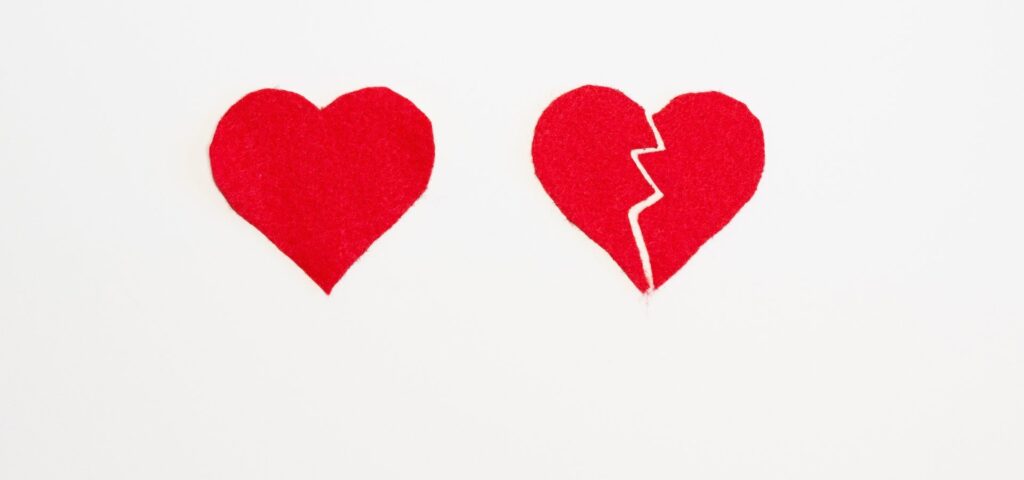[vc_row][vc_column][vc_custom_heading text=”Early sobriety and relationships” use_theme_fonts=”yes”][vc_column_text]Starting a new romantic relationship in recovery can put us back on the same pink cloud we experienced after freeing ourselves from substance abuse. We regain confidence in ourselves that we might have lost along the way. We revel in the companionship and new perspectives from getting to know a new person intimately; much like we did by becoming acquainted with and listening to new friends at meetings. We feel contented by having our social, emotional and sexual desires met.[/vc_column_text][/vc_column][/vc_row][vc_row][vc_column][vc_single_image image=”29502″ img_size=”full” add_caption=”yes” alignment=”center”][/vc_column][/vc_row][vc_row][vc_column][vc_custom_heading text=”Depression, Relapse and Relationships” use_theme_fonts=”yes”][vc_column_text]While many of us will experience the bliss from starting a new relationship, most of us have also felt the opposite: the spiraling torment of heartbreak. It can be difficult to know how to get closure, or stay sober, after a breakup, especially when balancing our recovery from substances with recovering from breakup depression. For addicts and alcoholics, the negative feelings associated with a breakup can overlap with the negative feelings that trigger cravings and potentially relapse. We’ve been let down, perhaps because we had unrealistic expectations of that person. Perhaps we feel wronged or misunderstood, which can lead us to self-pity or isolation. Our frustrations can even be turned inward, triggering feelings of uselessness or unworthiness. [/vc_column_text][/vc_column][/vc_row][vc_row][vc_column][vc_custom_heading text=”Feel Your Feelings in Sobriety” use_theme_fonts=”yes”][vc_column_text]When these feelings pop up, it is important to remember that it is healthy to feel this pain. If we are feeling healthy emotions, then we are more likely to take part in healthy relationships in recovery, not toxic relationships, in the future. It means we’re experiencing raw emotions, rather than avoiding them or numbing them by using our drug of choice or getting drunk. By removing substances from our lives and participating in recovery we gain the important coping mechanisms that allow us to learn from adversity and build strength through the experience. Isolation might seem appealing. We don’t want to have to explain what happened to our close friends or family members. Perhaps our mental health has gotten the better of us, and we’re afraid to cry in public. But those of us that haven’t allowed a breakup to derail our sobriety have taken this time to as opportunity to reengage with our recovery support system and learn from those who have experienced the same thing. Because someone has. We should be proud of what we’ve accomplished and will continue to accomplish in sobriety. Even our relationships in early recovery. [/vc_column_text][/vc_column][/vc_row][vc_row][vc_column][vc_custom_heading text=”No Pain, No Gain” use_theme_fonts=”yes”][vc_column_text]Our disappointment can motivate us rather than demean us. Put that gym membership to good use and produce some natural endorphins. Take up a hobby you’ve always been interested in or reengage in one that fell by the wayside while we were in a relationship. The phrase “no pain, no gain,” is most commonly used to describe building muscle mass, but it is equally true of our emotional capacities. We should not look at our relationship as having “failed,” or been a “waste of time.” Let it serve as an experience that let you better know yourself. To know what you want and do not want out of a relationship. Let this experience be proof that your sobriety is not easily shaken and you can cope in a healthy way now and in the future. At TruHealing Centers across the country we treat those struggling with addiction, and provide them with as much comfort as possible through the various levels of alcohol and drug addiction treatment. To learn more about our therapies and which center is the best match for you, contact an admissions specialist at 833-216-3079.[/vc_column_text][/vc_column][/vc_row]








